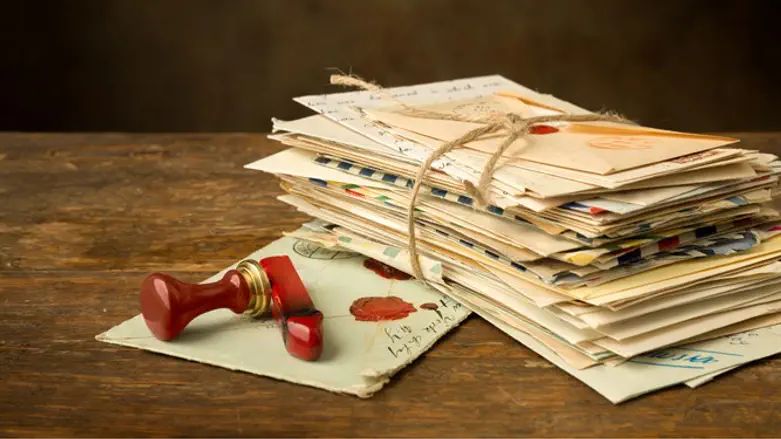
Fourteen letters, written by the great Rabbi Avraham Yeshayahu Karelitz ztz”l, more usually known as the Chazon Ish, were recently donated to the National Library by the family of the letters’ recipient, Tzvi Aryeh Yehuda, who in his youth was a student of the great Torah leader.
The letters throw light on a hitherto largely unknown personal aspect of the great Torah leader, Israel Hayom notes. Dr. Tzvi Aryeh Yehuda (who passed away in 2014) was born in Jerusalem and was close to the Chazon Ish from 1941 until the early fifties – the Chazon Ish passed away in 1953. Dr. Yehuda qualified for the Rabbinate, and later decided to enter academia and he later served as a lecturer in Jewish Studies in the United States.
One of the letters in the bundle donated describes the response of the Chazon Ish to the decision of his former student to join the IDF: “I am rich in my love of my fellow man, and especially for a young man equipped with talents and an understanding heart. This young man who devoted himself to learning Torah endeared himself to me and captured my soul, and the memory of him fills my whole world and my soul is bound to him with cords of love that will not be severed. Seeing you suddenly turn away… I have to keep distracting myself from the great distress this causes me, from which I could not free myself due to the immense pain.”
Dr. Yoel Finkelman, curator of the Chaim and Chana Salomon Jewish Collection at the National Library, described the significance of the letters in light of the revelations they contain of something of the personality of their author. “The Chazon Ish was known primarily as a great Torah genius and expert in Jewish law, as well as the leader of the haredi world in that generation, around the time when the State was established,” he told Israel Hayom. “It is rare to find references to his more human side, to his emotions – as we see here when he admits to paternal and loving feelings toward a young student of his, even as he relates his concern regarding the path in life that this young student has chosen.”
The Yehuda family that donated the letters issued a statement saying: “These letters express the unique bond between two people, as well as the rare closeness between a teacher and his student. We invite the wider community as well as researchers to peruse these letters and learn about the teacher, the student, and the special connection between them.”
